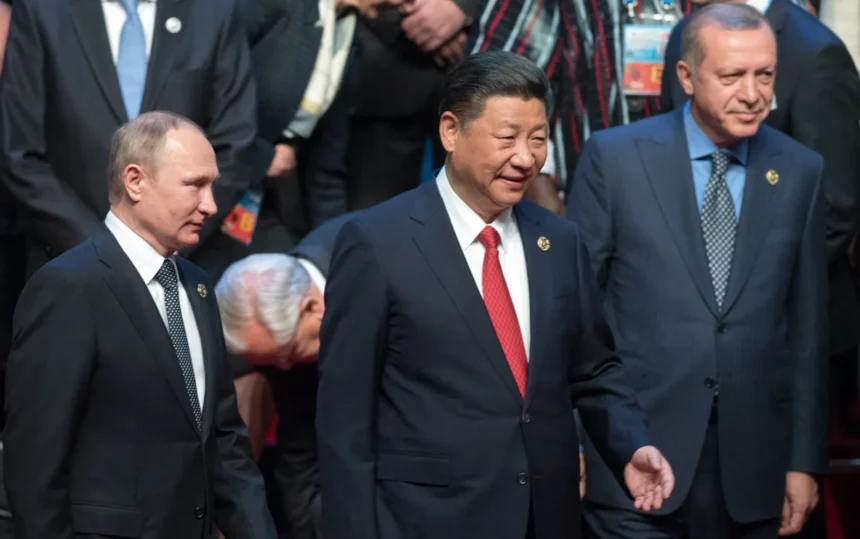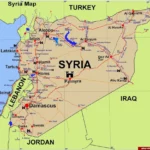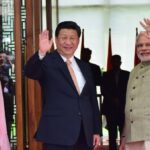Summary by Geopolist | Istanbul Center for Geopolitics:
The study provides a detailed analysis of the shifting dynamics in the post-Soviet South, encompassing the South Caucasus and Central Asia. These regions are undergoing significant reconfigurations in their geopolitical and socio-economic landscapes, influenced by the decline of Russian dominance, the rise of regional assertiveness, and the involvement of external powers such as the EU, China, and Turkey.
Russia, while still a major player, faces growing challenges to its influence. Its dominance, long sustained through economic dependencies, cultural ties, and military presence, is increasingly contested. Economically, many countries in the region remain tied to Russia through energy imports and trade facilitated by mechanisms like the Eurasian Economic Union. However, these ties now present opportunities for these nations to navigate sanctions against Russia and diversify their partnerships. In the South Caucasus, Russia’s role has notably diminished. Azerbaijan’s assertive actions in Nagorno-Karabakh, coupled with Armenia’s pivot toward the West, have significantly eroded Moscow’s traditional position as a mediator.
Culturally, Russian influence persists through the widespread use of its language and the presence of significant Russian minorities. Labor migration to Russia further solidifies economic interdependence, but incidents such as the expulsion of Tajik migrants following security concerns highlight the fragility of this leverage. Despite its ongoing efforts to maintain relevance, Russia’s hegemonic aspirations are increasingly challenged by a growing sense of agency among Eurasian states.
The countries of the post-Soviet South are asserting their autonomy and diversifying their foreign policy strategies. Kazakhstan and Uzbekistan exemplify this trend by balancing relations with Russia, China, Turkey, and the EU. Azerbaijan’s engagement with Central Asian states through consultative meetings and military exercises without Russian participation reflects a shift toward localized problem-solving and regional cooperation. In parallel, cultural reassertion is taking shape, with many nations re-evaluating Soviet-era narratives and emphasizing their unique national identities.
China has become a significant external player in Central Asia, largely through its Belt and Road Initiative. This program has fostered infrastructure development and economic modernization, offering an alternative to Russian and Western influence. Although less prominent in the South Caucasus, China’s growing presence provides an additional vector for regional states seeking diversified partnerships. Turkey, meanwhile, has leveraged its historical, cultural, and linguistic ties to establish itself as a regional leader, particularly through its leadership of the Organization of Turkic States and bilateral initiatives.
The European Union’s engagement in the region is characterized by its promotion of democracy, human rights, and market reforms. However, its influence is constrained by several factors. Many regional elites view the EU’s emphasis on liberal values as intrusive and incompatible with their governance models. Allegations of hypocrisy, stemming from internal EU challenges with member state compliance, undermine its credibility. Furthermore, while agreements such as the Comprehensive and Enhanced Partnership Agreement with Armenia and the Deep and Comprehensive Free Trade Area with Georgia aim to foster economic integration, the perceived slow pace of tangible benefits diminishes their appeal. The EU’s lack of hard-security credentials also limits its ability to meet the priorities of Eurasian states, making it a secondary option compared to other powers.
Authoritarianism remains a defining feature of the region’s political landscape. Many states have strengthened their control by emphasizing sovereignty and non-interference, aligning their governance models with the norms of external powers like China and Turkey. This authoritarian regionalism is reflected in initiatives like the 3+3 platform in the South Caucasus, which focuses on managing regional issues while sidelining Western influence.
The ongoing realignment in the post-Soviet South presents both challenges and opportunities for external powers, particularly the EU. To remain relevant, the EU must recalibrate its strategies. Pragmatic engagement that respects regional priorities while advancing shared interests will be essential. Visible and immediate economic benefits, alongside strengthened connectivity initiatives like the Trans-Caspian corridor, could help counter skepticism about EU integration. Addressing the credibility gap in its foreign policy through consistent application of its values will also be critical.
The post-Soviet South is navigating a complex transition from its Soviet past to a multi-polar future. The erosion of Russian dominance, coupled with the rise of regional autonomy and external competition, underscores the need for flexible and nuanced approaches. For the EU, fostering partnerships based on mutual respect and shared goals rather than imposing external prescriptions will be key to shaping the region’s evolving dynamics.
Read more here.







